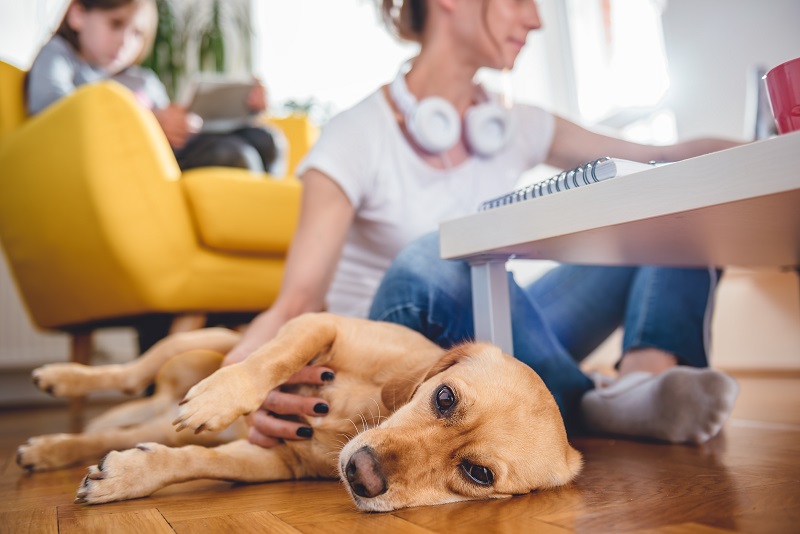A dog is a man’s best friend, but what happens when the friendship isn’t reciprocated?

Most dog-owners delight in the unconditional love of their canine. No matter what happens at work or in their relationships, they can always rely on the affection their dog will show the second they walk through the front door. It might feel slightly personal if your dog is giving you the cold shoulder, but rest assured, your dog’s actions aren’t an attack on your character. Rectifying your friendship may be as simple as altering something you’re doing.
Fear and anxiety
Before you become consumed by the idea that your dog doesn’t like you, it’s worth ruling out them being afraid. If your dog hides, cowers, urinates or acts aggressively around you, it’s possible that you are triggering a fear response in them – this is particularly common in adopted dogs that have experienced trauma, or dogs that aren’t properly socialised. Fear and anxiety are complex issues; you may need professional help from an animal behaviourist or medication prescribed by a vet.
Building a bond
Once you’ve ruled out fear, there are certain things you can do to build up the friendship between you and your dog. Keep in mind that every dog is different, and what can be endearing to one dog may be annoying to another – so strengthening your relationship is very much an individual process.
- Reciprocal play: the more fun you can have with your dog, the stronger your bond will become. A study conducted in 2001 finds that we often use ineffective play signals when trying to initiate play with our dogs, and that the most successful ways of eliciting play include chase-and-running-away, lunging forward, grabbing or holding a dog’s paws, and play bowing.
- Patting: most dogs enjoy being petted on their chest, shoulders, the base of their tail, under their chin or at the back of their neck. For timid dogs, reaching directly over your dog’s face to pat their head can be an intimidating gesture.
- Feeding: feeding your dog their meals sets up a routine in which they are reliant on you. It also sets up a powerful positive association between you and something they love – food.
Mental stimulation: a recent study finds that dogs respond more positively to overcoming challenges than they do to us pampering them. If we are the person responsible for teaching them new tricks or allowing them to go and explore new scents when they are out for a walk they are more likely to react positively to us than if we simply show them affection. Toys are also excellent for mental stimulation, particularly ones designed to make your dog solve puzzles.


